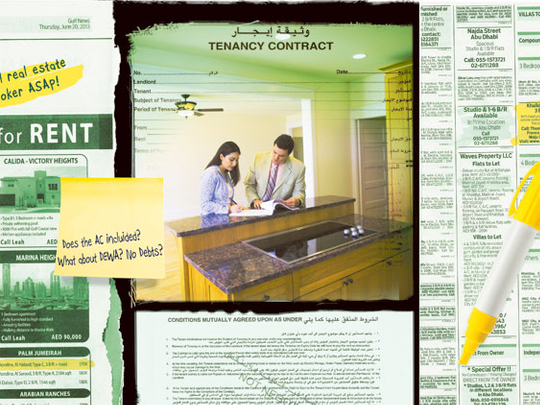
Since the beginning of 2011 rents have done nothing else really but steadily rise, according to data by Reidin.com and that’s unlikely to change.
The REIDIN Dubai Residential Rent Index recorded an increase of 11.62 per cent over the past 12 months. “We predict a 10 per cent plus increase year-on-year in the next 12 months,” adds Ahmet Kayhan, CEO of Reidin.com.
“We believe the residential rental market fundemantals are very strong in Dubai. The supply demand gap works to the advantage of landlords. We don’t expect the rates across Dubai will fall but the increase will slow down. In certain areas it can drop seasonally but that’s temporary considering the increasing population of Dubai and demand for Residential units,” he adds.
According to Asteco’s Dubai Focus for the first quarter of this year, the demand came from, both, relocations and new tenants.
Research suggests that rising rental values are driving tenants towards lower budget options, which have struggled over the past two to three years. Less sought after areas are becoming more popular.
“The Holy month of Ramadan will bring about a slowing of the rental market in terms of activity but we predict that this activity will pick up again after EID. This increase in activity will be largely due to new people taking up job positions,” comments Mario Volpi Head of Sales & Leasing Residential, UAE – Cluttons.
And rents could further strengthen on the back of increased investment interest if Dubai’s bid for the World EXPO comes through in November, said Shah. “It is well known that countries winning major events like this embark on large scale infrastructure and development enhancements, so that will cause a flurry of excitement,” she adds.
Over in Abu Dhabi the rental market has already started to slow down in the heat of the summer, according to Volpi. “Traditionally this time of year sees the city emptying due to the end of the school and university terms,” he adds.
Volpi sees rental prices softening by around five percent throughout July, but picking up again after Eid.
As the deadline for Abu Dhabi workers to live in the emirate is finalised sometime in September, Cluttons predicts that rental prices may rise by between five and ten per cent during August and September. “We see stabilisation of rental prices from end of September onwards with reduced activity again in December due to the holidays,” he adds.
This has to be seen in the context of rents falling for well over one and half years, due to oversupply and low demand, especially in older areas such as those located on Abu Dhabi Island, according to Cluttons. Cheaper rents meant more tenants choose to forgo the Dubai-Abu Dhabi commute.
And since October last year rents are on the up in sough after communities, including Saadiyat Island, up by 25 percent on two bedroom apartments.
Walters is a freelance journalist




